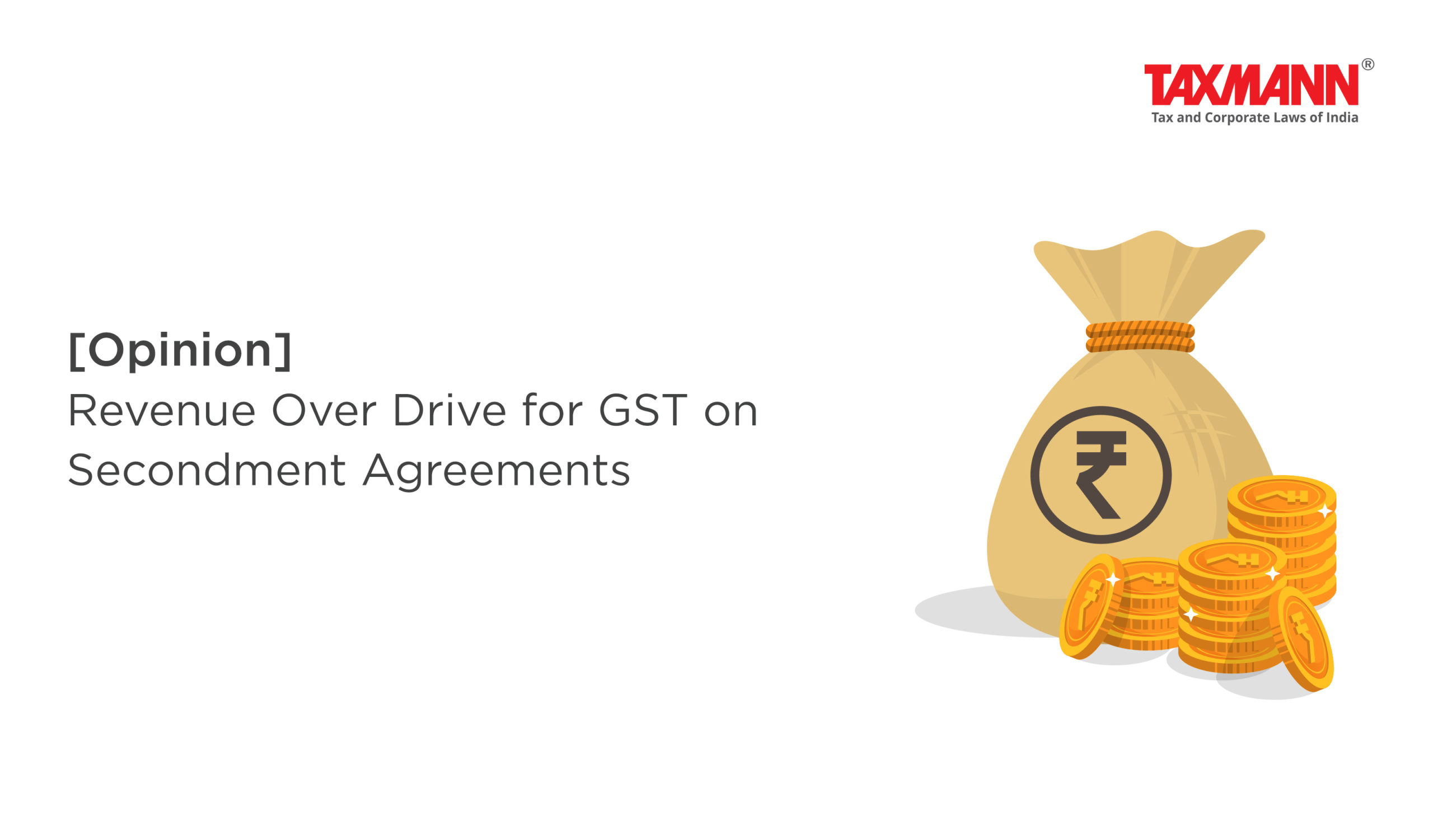[Opinion] Revenue Over Drive for GST on Secondment Agreements
- Blog|News|GST & Customs|
- 2 Min Read
- By Taxmann
- |
- Last Updated on 19 May, 2023

D Arvind – [2023] 150 taxmann.com 302 (Article)
It is an often-occurring phenomenon when a native Indian entity and a foreign entity collaborate or when an Indian subsidiary of a non-native enterprise comes into play, the employee belonging to the outside foreign entity may be sent on secondment to render services as part of the manpower pool in India.
Employees are frequently kept enlisted in non-domestic organizations (foreign entity) with the exclusive aim of obtaining benefits of social security in those regions. Otherwise, for all practical purposes, the seconded employees become employees of the Indian entity and work under the direction and control of the Indian entity.
The taxability of consideration paid to foreign entities as a reimbursement of salary and perks paid to seconded employees working in India was taken to the Supreme Court in the case of CCE & ST v. Northern Operating Systems Pvt. Ltd. under the Service Tax regime.
In this case, the Revenue on behalf of the central government relied on various agreements made between the respondent Northern Operating Systems Pvt. Ltd. and its group companies located in the USA, UK, Ireland, Singapore, etc.
As per the master agreement, made between Northern Operating Systems Pvt. Ltd. (Indian company) and Northern Trust company ( a foreign company ) the Indian company was to provide general back office and operational support to the foreign company. This included foreign investment, investment management, evaluation and reporting on investments, IRAS fund accounting, securities management, lending operations, and taxes. Such services would be provided by Indian company to group entities or other parties nominated by Northern Trust Company (a foreign company).
Consequent to the master agreement, a secondment agreement was made between a foreign company and Northern Operating Systems Pvt. Ltd. (an Indian company). Under this agreement, the foreign company and its group companies would second employees to the Indian company, who would be remunerated through the payroll of their foreign employer. The Indian company will have to reimburse expenses paid during the secondment agreement in respect of the remuneration of seconded employees, including salary, incentive, out-of-pocket expenditure, etc.
Though the seconded employees work under the control and direction of the Indian company, an independent letter of agreement between a foreign company and one of the seconded employees specifically states that the secondment was a limited-duration assignment in terms of which the employee had the right to terminate the engagement.
Click Here To Read The Full Article
Disclaimer: The content/information published on the website is only for general information of the user and shall not be construed as legal advice. While the Taxmann has exercised reasonable efforts to ensure the veracity of information/content published, Taxmann shall be under no liability in any manner whatsoever for incorrect information, if any.

Taxmann Publications has a dedicated in-house Research & Editorial Team. This team consists of a team of Chartered Accountants, Company Secretaries, and Lawyers. This team works under the guidance and supervision of editor-in-chief Mr Rakesh Bhargava.
The Research and Editorial Team is responsible for developing reliable and accurate content for the readers. The team follows the six-sigma approach to achieve the benchmark of zero error in its publications and research platforms. The team ensures that the following publication guidelines are thoroughly followed while developing the content:
- The statutory material is obtained only from the authorized and reliable sources
- All the latest developments in the judicial and legislative fields are covered
- Prepare the analytical write-ups on current, controversial, and important issues to help the readers to understand the concept and its implications
- Every content published by Taxmann is complete, accurate and lucid
- All evidence-based statements are supported with proper reference to Section, Circular No., Notification No. or citations
- The golden rules of grammar, style and consistency are thoroughly followed
- Font and size that’s easy to read and remain consistent across all imprint and digital publications are applied



 CA | CS | CMA
CA | CS | CMA
